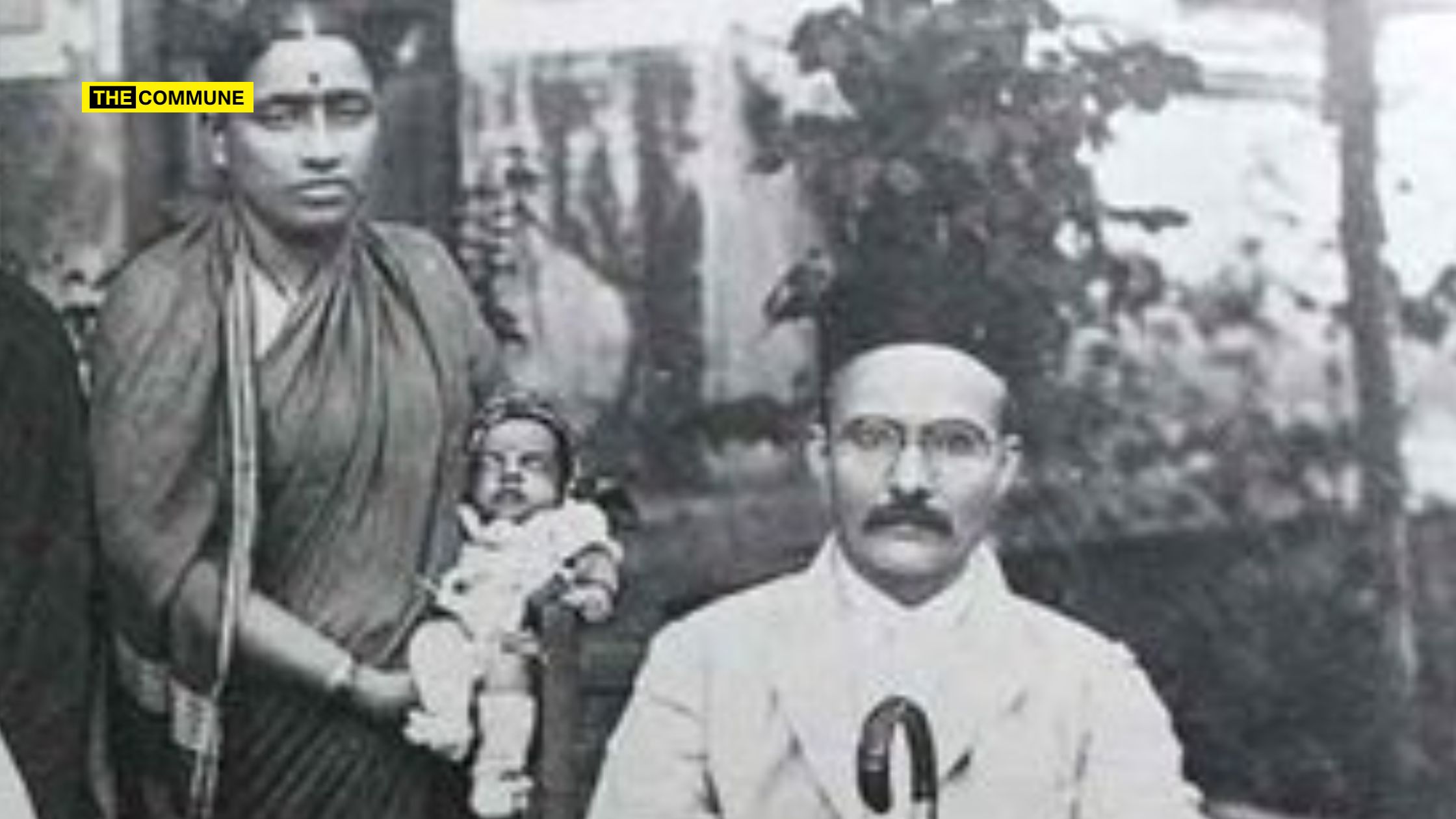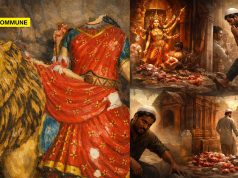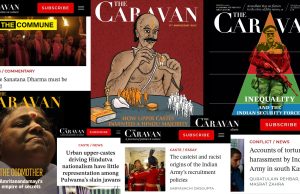
Behind every successful man is a woman. While we are familiar with Veer Savarkar, not many know about the woman in his life, Yamunabai Savarkar more affectionately known as Mai, a lady as great as her illustrious husband.
Her real name was Yashoda, and she came from a background, totally different from that of Veer Savarkar’s. While her husband came from a modest family, supported by his elder brother, she came from a rich and influential family. Born to Ramchandra Trimbak aka Bhaurao and Lakshmibai aka Manutai Chiplunkar in Thane district on 4 December 1888, her father Bhaurao Chiplunkar was the Dewan of the principality of Jawahar in Thane District, and she grew up in the lap of luxury.
Fondly called Jiji, she was unassuming and down to earth despite coming from a very wealthy background. She was friends with Savarkar’s sister-in-law Yashoda, wife of his elder brother Babarao.
The Chiplunkars were good friends with the Savarkar family, and Bhaurao was impressed by Vinayak’s intellect, his erudition, and his integrity.
It was Savarkar’s Mama (uncle), who brought forth the alliance, and Bhaurao agreed to bear Savarkar’s educational expenses too. Vinayak in turn, greatly respected Bhaurao, and saw in him the father figure he had missed early in life.
Mai and Vinayak entered into wedlock at Nashik in February 1901, she entered into his home and soon imbibed her husband’s nationalism and patriotic spirit. Fond of singing, she lent voice to Vinayak’s patriotic poems and ballads and made the other women members of the family memorize them.
She became a member of the Atmanishtha Yuvati Samaj, a body started for women by Babarao’s wife Yashoda, to inculcate nationalist feelings in women, and make them politically aware.
Their meetings would typically begin with the patriotic songs of Aba Darekar and then would read out Savarkar’s poems and his anti-British articles from the Keshari.
The members were required to take the following oath.
“In the name of the Motherland, Shivaji Raja who won freedom through war, and Bhavani Mata who gives strength, I hereby give witness before Shivaji and Bhavani Durga Devi that I shall use swadeshi goods only, love my country more than my life, strive for my country’s freedom and help those who are doing so.”
The ladies of the group wore glass bangles made in India only, and only coarse hand-made cloth. They felicitated Tilak’s wife Satyabhama Bai when she visited Nashik, and in 1908, they also raised funds for his defence in court. Bhaurao Chiplunkar bore the educational expenses of Savarkar, in fact, he helped him to get admission into Pune’s prestigious Fergusson College.
Vinayak in turn would visit Mai, regularly at Jawahar, and his epic poem Kamala was based on her to an extent. They had a son named Prabhakar born in 1905, who unfortunately died of smallpox when he was in London.
It was not an easy life for Mai, her husband and his entire family were under constant surveillance by the British. Just 15 days after Prabhakar had passed away, Vinayak’s elder brother Babarao, was arrested and deported for life to the infamous Cellular Jail in Andamans.
When Savarkar was arrested, after his epic escape at Marseilles and brought to India for trial, Mai went all the way to Nashik to see him. She had to travel on horseback from Trimbakeswar to Nashik along with her brother to meet her husband in prison.
Even worse, fearing the wrath of the British, none of her friends gave her shelter, and she had to spend all night in heavy rain at a temple in Nashik. She finally met her husband, and they spent around 45 minutes together.
When Veer Savarkar was sentenced to life at Cellular Jail, she accepted her fate stoically. However, when she saw him in chains at the Dongri prison in Mumbai, she became emotional and almost broke down. It was then Veer Savarkar advised her.
“If the Almighty shows compassion, we shall meet again. Till then, if you are ever tempted by the thought of ordinary family life, remember that if producing children and collecting a few twigs to build a home is to be called married life, then such a life is led by crows and sparrows as well.
But if a nobler meaning is to be given to married life, then we are blessed to lead a life fit for human beings. By breaking our hearth and utensils, golden smoke may ensue from thousands of homes in the future. And did not plague render our homes desolate when we were building them? Face the odds bravely.“
To which Mai replied – “We are trying to do just that. As far as we are concerned, we have each other. If you take care of yourself, we shall feel fulfilled.” Savarkar reassured her that he would take care and walked around with the manacles raised.
After a decade of separation from her husband, she was finally reunited with him in Ratnagiri, and she supported him wholeheartedly in his campaign for social reform.
When Ratnagiri was stuck by plague in May 1924, his younger brother Narayan brought Babarao and Mai to Mumbai. Vinayak could however not leave Ratnagiri, as the British Govt had placed him under house arrest.
Finally, in June 1924, he was permitted to go to Nashik, and after he was sometime he was in Mumbai till November, before he had to come back to Ratnagiri. Later they had a daughter named Prabhat in January 1925, and another daughter Shalini who however died in infancy.
When Mahatma Gandhi came to Ratnagiri, in 1927, he personally called on Savarkar at his home, as the latter was not feeling well. Mai and Kasturba spent time together, too sharing pleasantries in the kitchen. They had another child, this time a boy named Vishwas in March 1928.
In 1930, Mai chaired a public meeting of women at the Vithal Mandir in Ratnagiri to propagate Swadeshi, which was attended by Dalit women too. She also took part in the inter-community dining of women organized in 1932, at Ratnagiri, on the occasion of the visit of the Satyashodak leader Madhavrao Bagal.
She along with Savarkar organized an Akhil Hindu Yagna, and in 1936 a holy palanquin, was taken out on the occasion of Akhil Hindu Nama Saptah consecrated by Mai.
One of the largest inter-community dinners was organized for women of all castes at the Patit Pavan Mandir in Ratnagiri, and Mai along with Ms. Mundkur, the wife of the Dy Collector attended it.
She was felicitated by ladies of the Chitpavan Brahmin Sangh in 1941, and she later attended an Akhil Hindu Tilgul function, saying “The nation is my home”.
When Savarkar could not attend a Hindu Mahasabha convention in Pune, due to the volatile atmosphere after Gandhi’s assassination, Mai appeared on his behalf.
She was felicitated with the traditional sari, a gold necklace, and some cash. M.S. Dixit who wrote a small biography of Mai, Shantabhai Gokhale, Godumai Khare, and Saraswatibai Kanikar were among those who spoke admiringly of Mai’s sterling qualities.
And finally, Mai’s thanksgiving speech was read out by Sushilabai Gokhale. “Hindu sisters! In my childhood, the secret society ‘Abhinav Bharat’ had several ladies’ branches. In one of these branches and on the instructions of my late sister-in-law Yesuvahini, I took an oath to sacrifice everything for the glory of the Hindu Dharma and for the freedom of Hindustan. Many of my relatives and friends who undertook this sacred mission (vrat) along with me had their homes and family lives destroyed due to this. Many women who lost their husbands for the cause of Dharma in the prime of their youth laid down their lives pining in vain for their husbands.
In the last 4-5 years, several thousands of our Hindu sisters have surpassed the Chittod of yore and performed jauhars (self-immolation) in Kashmir, Sind, and Bengal provinces. How can one mention their sacred names that run in thousands? If I mention only the names of those brave Hindu sisters whom I know without mentioning the names of those brave Hindu sisters, I shall be in a sense committing partiality.
Hence, at the outset, I humbly and gratefully salute thousands of those brave Hindu women who laid down their lives to protect the Hindu Rashtra and Hindu Dharma. And then, all I say for myself is that the Almighty gave me the courage to do my duty to the best of my ability.
What is a Tulsi leaf? But when it is offered at the Divine feet and dries up, even the saints rub it on their foreheads. My own condition today is no different. I am but a bundle of dried flowers and leaves. I was fortunate enough to have fallen at the Divine feet. That is why great women like you are felicitating the dried flowers that my life is. But truly, this felicitation is not of the dried flowers but of the Master himself. To conclude, my message to the rising generations is that we should protect the freedom and self-rule that we gained through our valour.”
– Mai’s speech
Mai soon became a grandmother when her daughter Prabhat gave birth to a son in 1949, and her son Vishwas to a daughter in 1953. However, by 1956, Mai soon became ill and was kept at AK Talwalkar’s Nursing Home in Dadar. Though she came back home, Mai was again struck with lymphoma in 1956 and brought back to Dadar.
In the meantime Savarkar’s health too was not good, he had suffered a fracture, and the long time he spent in Cellular Jail had broken him down.
Finally, when she passed away on November 8, 1963, Savarkar almost swooned on hearing of it. The woman who had walked with him in life, been by his side in the worst of his times, was no more.
”Mai has passed, her life has been fulfilled, I have already bid farewell to her. I do not feel up to it to go there.”
As willed by Savarkar, her body was not kept in state, but taken straight to the crematorium. He himself did not attend her cremation and did not desire any public emotion.
Mai was a simple woman, who walked shoulder to shoulder with her husband and took care of his needs. She was a true Sita of modern times. She ensured his clothes were always neatly ironed, and managed the family within very modest means. Considering she came from a very rich family, she adjusted wonderfully within her husband’s very humble household.
She spent time in the garden watering plants just to be with Savarkar. Though he himself was an atheist and did not perform Puja, he nevertheless gave full freedom to Mai to do it, which he just observed. He ensured his numerous public engagements did not burden Mai in her household work.
She not only supported him in his social reform campaign but also took care of a Dalit girl, whom Savarkar adopted and bought into the home. When a mob descended on Savarkar Sadan, after Gandhi’s assassination, she bravely faced it with a stick in her hand.
A truly great woman of strength, character, and integrity, and the worthy wife of a great man, that was Mai.
(This was originally published on social media platform X and has been republished here with permission.)
Ratnakar Sadasyalu is a blogger with a passion in movies, music, books, and history. A techie by profession, and a writer at heart. Author of City of Victory a book on Vijayanagar Empire.
Subscribe to our channels on Telegram, WhatsApp, and Instagram and get the best stories of the day delivered to you personally.




